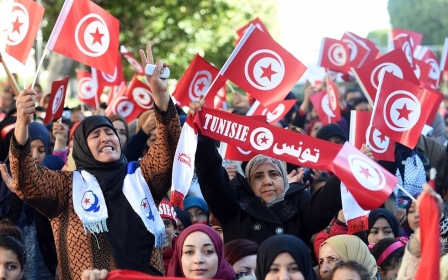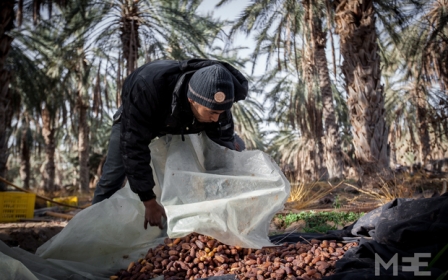Tunisians rally against bill that would pardon corruption

Hundreds of Tunisians demonstrated on Monday in the capital to protest against a bill being discussed in parliament to grant amnesty to people accused of corruption.
If the so-called "economic reconciliation" bill is passed, people accused of corruption would not be prosecuted but would instead pay a fine and reimburse embezzled funds.
When the bill was submitted to parliament last year by President Beji Caid Essebsi it sparked outrage, with demonstrators taking to the streets to denounce it.
Demonstrations against the bill have continued in Tunis and other cities as the bill is debated by a parliamentary commission.
On Monday, protesters chanted "No to reconciliation" and "The people want the fall of corruption," echoing the 2011 Arab uprisings' famous chant, "The people want the fall of the regime".
Tunisian NGOs, civil society groups and international organisations have denounced the bill, and in mid-July launched a campaign to block it dubbed "It will not pass".
The argue that the law could "intensify corruption" in Tunis, cradle of Arab Spring revolts that has seen many autocratic regimes in the Middle East toppled.
Human Rights Watch also spoke out against the bill this month, saying it would set back Tunisia's transition to democracy.
"The law would sabotage the mechanism Tunisia already put in place to address economic crimes through a mix of public truth-telling, restitution, and judicial flexibility," the watchdog said.
"Just as impunity gives human rights violators a green light to continue their abuse, letting economic criminals off the hook will lead to more corruption," said HRW's Tunisia office head Amna Guellali.
Essebsi has said the bill could help improve Tunisia's beleaguered economy.
Monday's estimated 400 protesters rallied outside the headquarters of Tunisia's main UGTT labour union before marching on Bourguiba Avenue in the city centre.
"The draft law will not pass," the demonstrators chanted.
Stay informed with MEE's newsletters
Sign up to get the latest alerts, insights and analysis, starting with Turkey Unpacked
Middle East Eye delivers independent and unrivalled coverage and analysis of the Middle East, North Africa and beyond. To learn more about republishing this content and the associated fees, please fill out this form. More about MEE can be found here.




